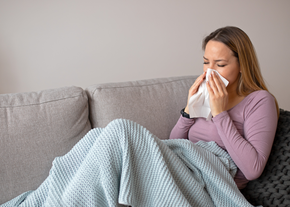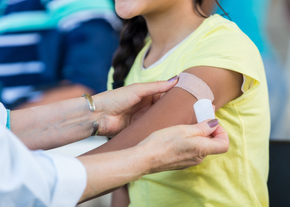
Respiratory Syncytial Virus (RSV)

Respiratory Syncytial Virus (RSV)
Protecting the Most Vulnerable from RSV
Respiratory syncytial virus (RSV) is a common and highly contagious virus that can cause serious illness in both young children and older adults. Each year in the U.S., approximately 58,000–80,000 children under age 5 are hospitalized due to RSV, with up to 3% of infants affected in their first year of life. Among those infected, 20–30% develop lower respiratory tract infections such as bronchiolitis or pneumonia.
At St. Luke’s Children’s Hospital, RSV is the leading cause of pediatric admissions during the winter months. But RSV doesn’t only affect children—older adults, especially those with chronic heart or lung conditions or weakened immune systems, are also at increased risk of severe illness and hospitalization.
To help protect those most vulnerable, St. Luke’s offers RSV vaccines and antibody treatments for eligible infants, pregnant mothers, and adults over 50. Our care teams provide expert medical support in our clinics and hospitals, following the latest CDC guidelines to ensure safe and effective protection for both ends of the age spectrum.
RSV Vaccine Administration - last updated 10/7/25
CDC Recommendations
This year the CDC recommended three treatments to protect against severe RSV:
- RSV vaccine for adults over 60.
- RSV antibody given to babies entering or born during the RSV season.
- RSV vaccine for unborn babies, given during pregnancy. (Given to those who are 32–36 weeks pregnant during September–January.)
If you or your infant are at high-risk for this disease or fit into one of these groups, consider if an RSV vaccine or antibody treatment would be helpful. St. Luke’s urges everyone who can to get immunized to safeguard their health and the health of the community.
For others who are less likely to get a severe RSV illness, everyday preventive actions, like covering coughs and sneezes and washing hands, can reduce the likelihood of spreading RSV.

